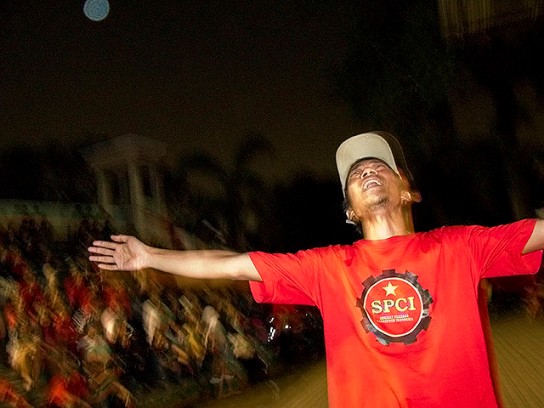Workers are not a dominant force in political life, but they are far from being powerless
Benny Hari Juliawan
 |
A worker from French-owned supermarket chain at a May Day protest, 2008.Henri Ismail/Poros Photo |
When the authoritarian New Order regime collapsed in 1998, many people expected that organised labour would be in a good position to benefit. Successive post-Suharto governments changed labour laws in ways that expanded workers’ rights, made it easier to form trade unions, and granted greater freedom of speech and freedom of association. At the same time, state institutions have also been democratised and reorganised in a way that allows wider participation for workers. For example, the place for labour representatives in tripartite institutions from the district to the national levels is no longer reserved for the New Order’s tame union SPSI and is instead open to competition for all unions. In some regions, unions are members of government task forces that ensure the observation of labour laws. Democratisation of the political system also opened the way for workers and unions to form labour parties or to influence elections and ensure that pro-labour politicians get elected.
Most observers now agree, however, that the working population in general, and organised labour in particular, have failed to take advantage of the new avenues for participation. Many new trade unions have been formed (in total there are 90 national federations as compared to just one before 1998),











